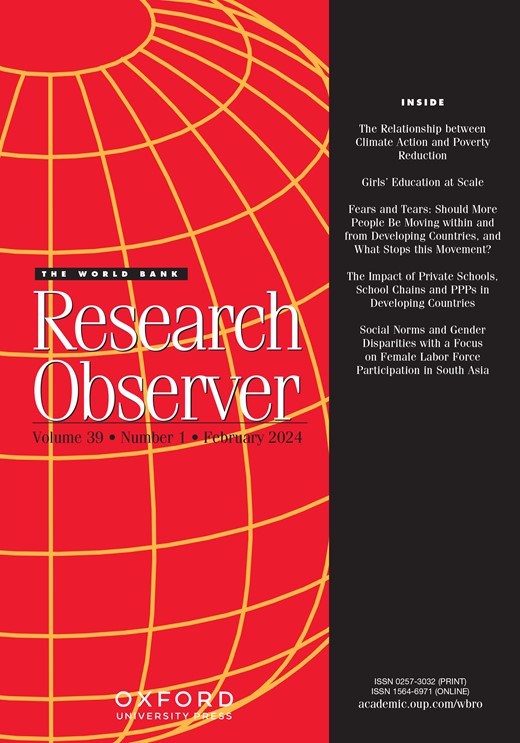世界银行土地政策的演变:原则、经验和未来挑战
IF 3.3
1区 经济学
Q1 DEVELOPMENT STUDIES
引用次数: 556
摘要
本文考察了自1975年世界银行“土地改革政策文件”制定以来,有关农村土地问题的政策建议的演变。该文件提出了三个指导原则:可取的是业主经营的家庭农场;市场需要允许土地转让给更有生产力的用户;以及平等资产分配的重要性。自那篇论文发表以来的25年里,这些指导原则一直保持不变,但现在人们认识到,公共保有制度可能比正式的所有权更具成本效益,对所有权计划的评判应基于其公平性和效率,土地租赁市场的潜力往往被严重低估,土地出售市场只有与发展农村要素市场的更广泛努力相结合,才能提高效率。如果土地改革能够利用(而不是破坏)土地市场的运作,并以分散的方式实施,它就更有可能减少贫困。实现包含这些要素的土地政策需要一个连贯的法律和体制框架,同时更多地依靠试点项目来检查干预措施在当地条件下的适用性。本文章由计算机程序翻译,如有差异,请以英文原文为准。
The evolution of the World Bank's land policy : principles, experience, and future challenges
This article examines the evolution of policy recommendations concerning rural land issues since the formulation of the World Bank's 'land reform policy paper' in 1975. That paper set out three guiding principles: the desirability of owner-operated family farms; the need for markets to permit land to be transferred to more productive users; and the importance of an egalitarian asset distribution. In the 25 year since that paper was published, these guiding principles have remained the same, but it is now recognized that communal tenure systems can be more cost-effective than formal title, that titling programs should be judged on their equity as well as their efficiency, that the potential of land rental markets has often been severely underestimated, that land-sale markets enhance efficiency only if they are integrated into a broader effort at developing rural factor markets, and that land reform is more likely to result in a reduction of poverty if it harnesses (rather than undermines) the operation of land markets and is implemented in a decentralized fashion. Achieving land policies that incorporate these elements requires a coherent legal and institutional framework together with greater reliance on pilot programs to examine the applicability of interventions under local conditions.
求助全文
通过发布文献求助,成功后即可免费获取论文全文。
去求助
来源期刊

World Bank Research Observer
Multiple-
CiteScore
12.60
自引率
1.20%
发文量
8
期刊介绍:
The World Bank Journals, including the Research Observer, boast the largest circulation among economics titles. The Research Observer is distributed freely to over 9,100 subscribers in non-OECD countries. Geared towards informing nonspecialist readers about research within and outside the Bank, it covers areas of economics relevant for development policy. Intended for policymakers, project officers, journalists, and educators, its surveys and overviews require only minimal background in economic analysis. Articles are not sent to referees but are assessed and approved by the Editorial Board, including distinguished economists from outside the Bank. The Observer has around 1,500 subscribers in OECD countries and nearly 10,000 subscribers in developing countries.
 求助内容:
求助内容: 应助结果提醒方式:
应助结果提醒方式:


